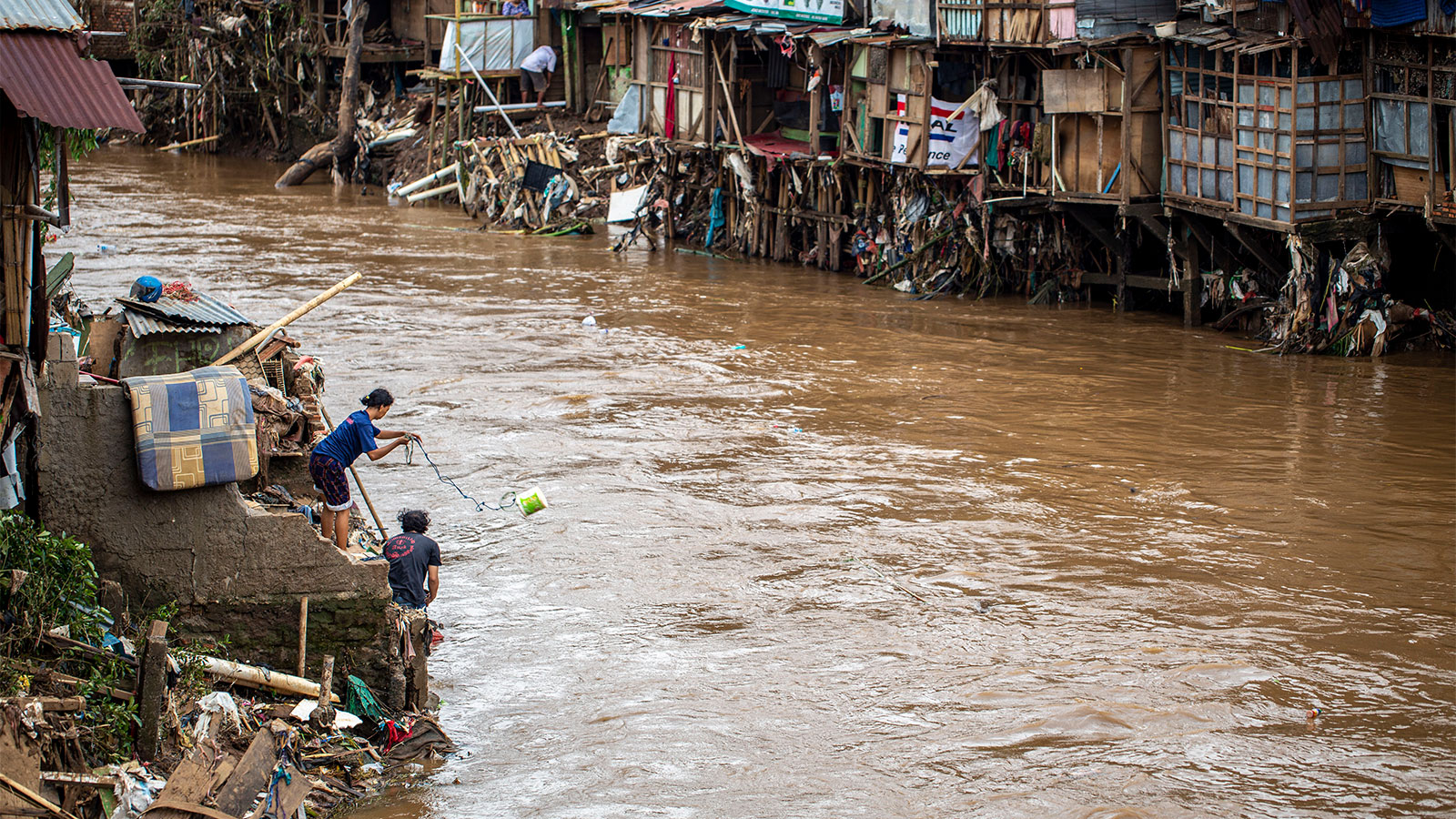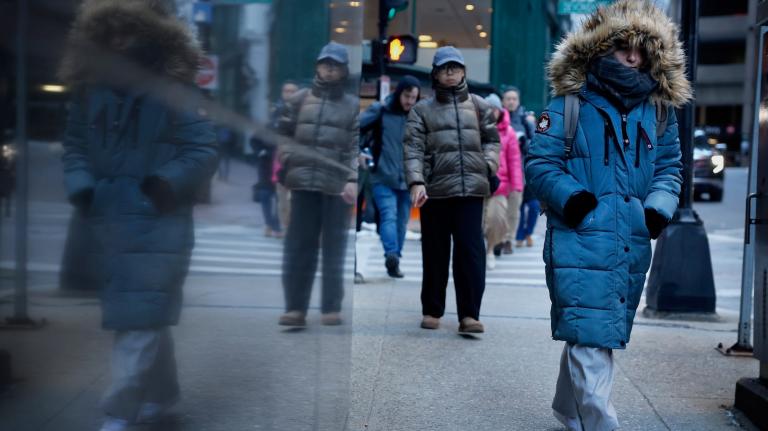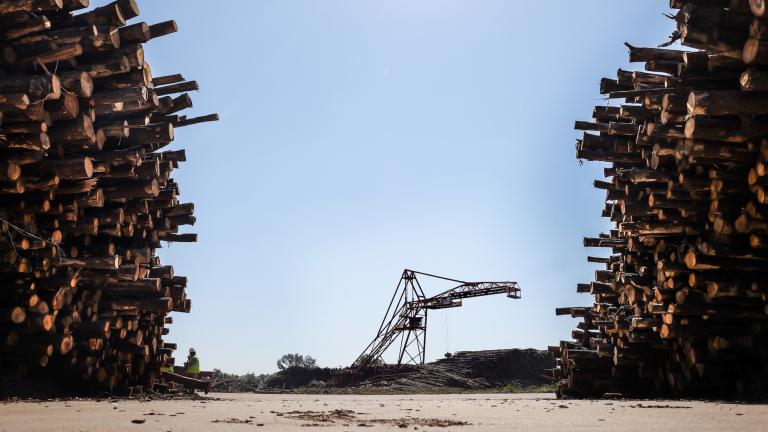It’s not just Australia that’s having a rough start to the new year. Indonesia’s sinking capital of Jakarta and the surrounding areas have been inundated with rain, triggering landslides and floods that have killed dozens of people.
As of Tuesday, the torrential downpours have left at least 67 people dead as rising waters deluged more than 180 neighborhoods and landslides buried at least a dozen Indonesians. Search missions for survivors are still ongoing, and officials say the death toll is expected to rise as more bodies are found.
Indonesia’s national meteorological agency said the rainfall on New Year’s Day was the heaviest downpour in a 24-hour period since Dutch colonists began record-keeping in the 1860s. Although floodwaters are starting to subside, the Indonesian Red Cross Society warned people to expect more severe rainfall in the coming days.
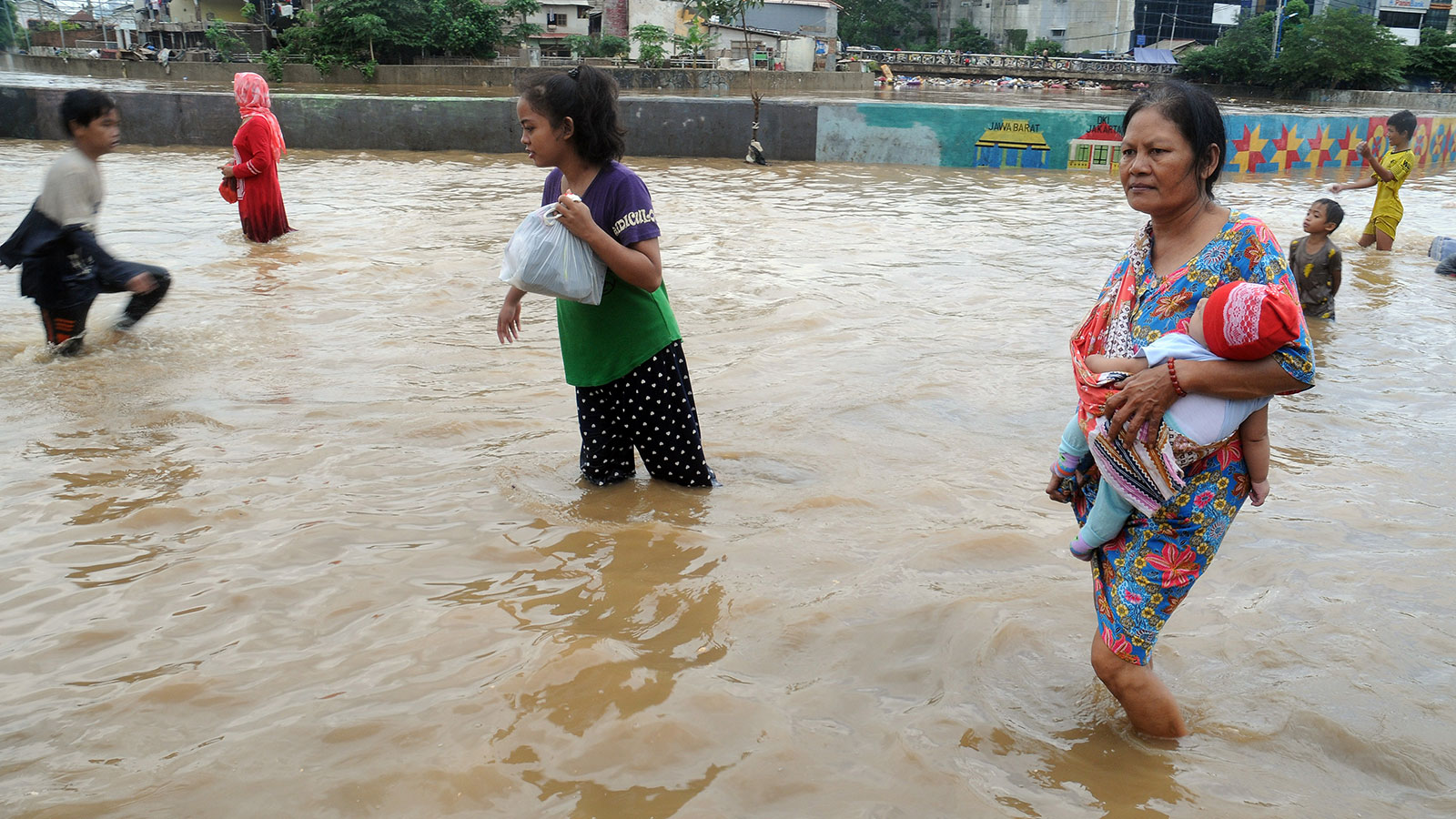
Dasril Roszandi / NurPhoto via Getty Images
The communities most vulnerable to flooding are those in poor neighborhoods — especially slums located near wastewater, which can spread pathogens when combined with flooding. More than 1,000 soldiers and health workers were dispatched to use disinfectant sprays in these areas on Sunday to prevent the spread of disease.
Jakarta, which is home to about 10 million people, is extremely vulnerable to the effects of climate change, including rising sea levels and extreme weather. It also has dangerous levels of air pollution and the largest uncovered landfill in Southeast Asia. On top of that, the city’s rapidly growing population has faced major water shortages in recent years due to a dearth of groundwater. Meanwhile, rivers are polluted with garbage, and researchers say that at least 20 tons of trash are dumped in the Jakarta Bay each day.
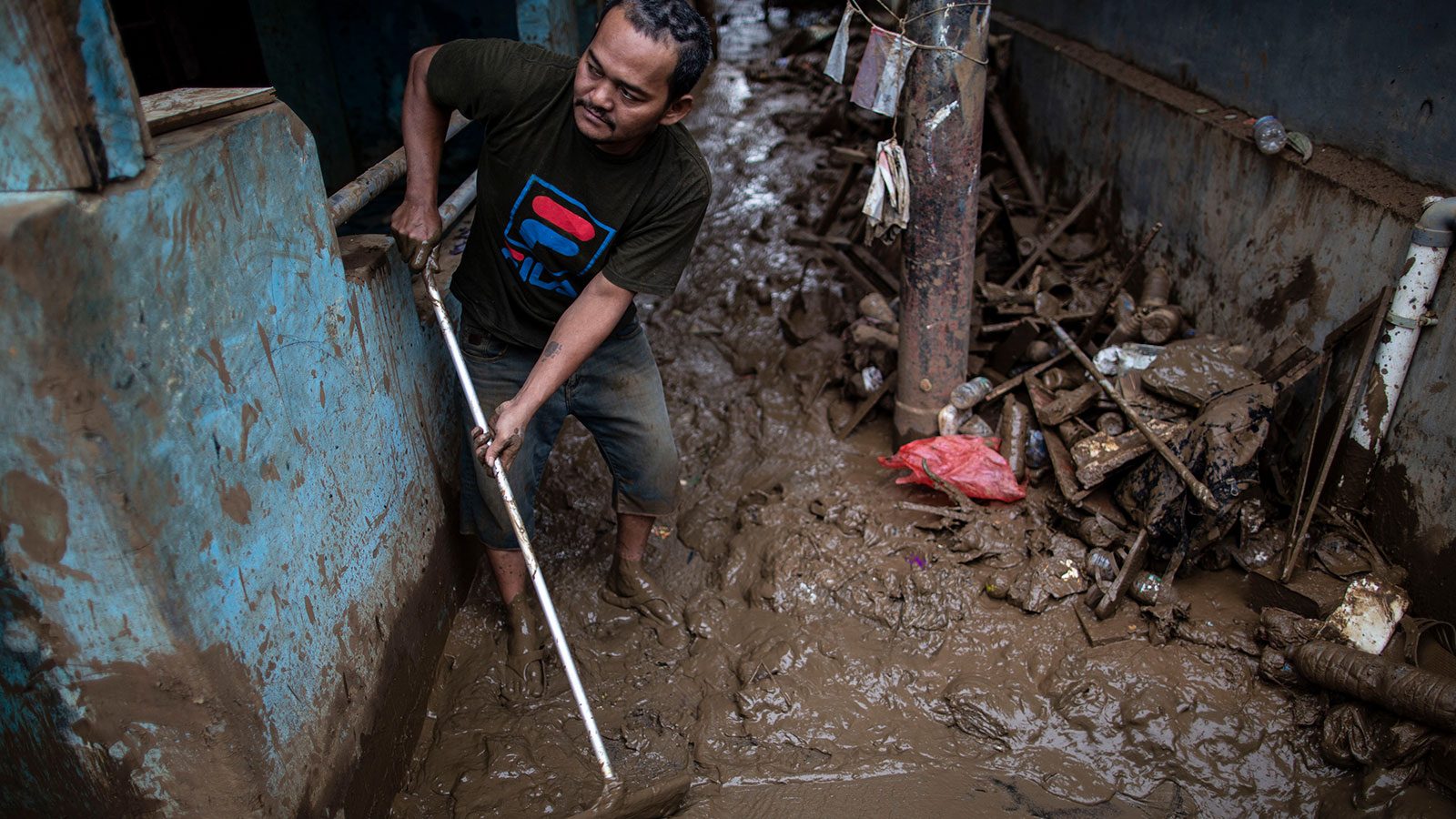
Donal Husni / NurPhoto via Getty Images
The city is sinking as quickly as 9 inches a year in some neighborhoods, and about half of it is already below sea level. The country is also the world’s fifth-largest emitter of greenhouse gasses, mostly due to the country’s deforestation habit. And if Indonesia and the rest of the world don’t take measures to slash emissions drastically, researchers say that 95 percent of northern Jakarta will be submerged by 2050.
The country has pledged to cut its carbon emissions by 29 percent by 2030 as part of the Paris Agreement, but the government is still set to rely on coal to generate electricity for the next decade. And a recent survey from YouGov and the University of Cambridge revealed that a whopping 18 percent of Indonesians believe there’s zero link between human activity and the climate crisis.
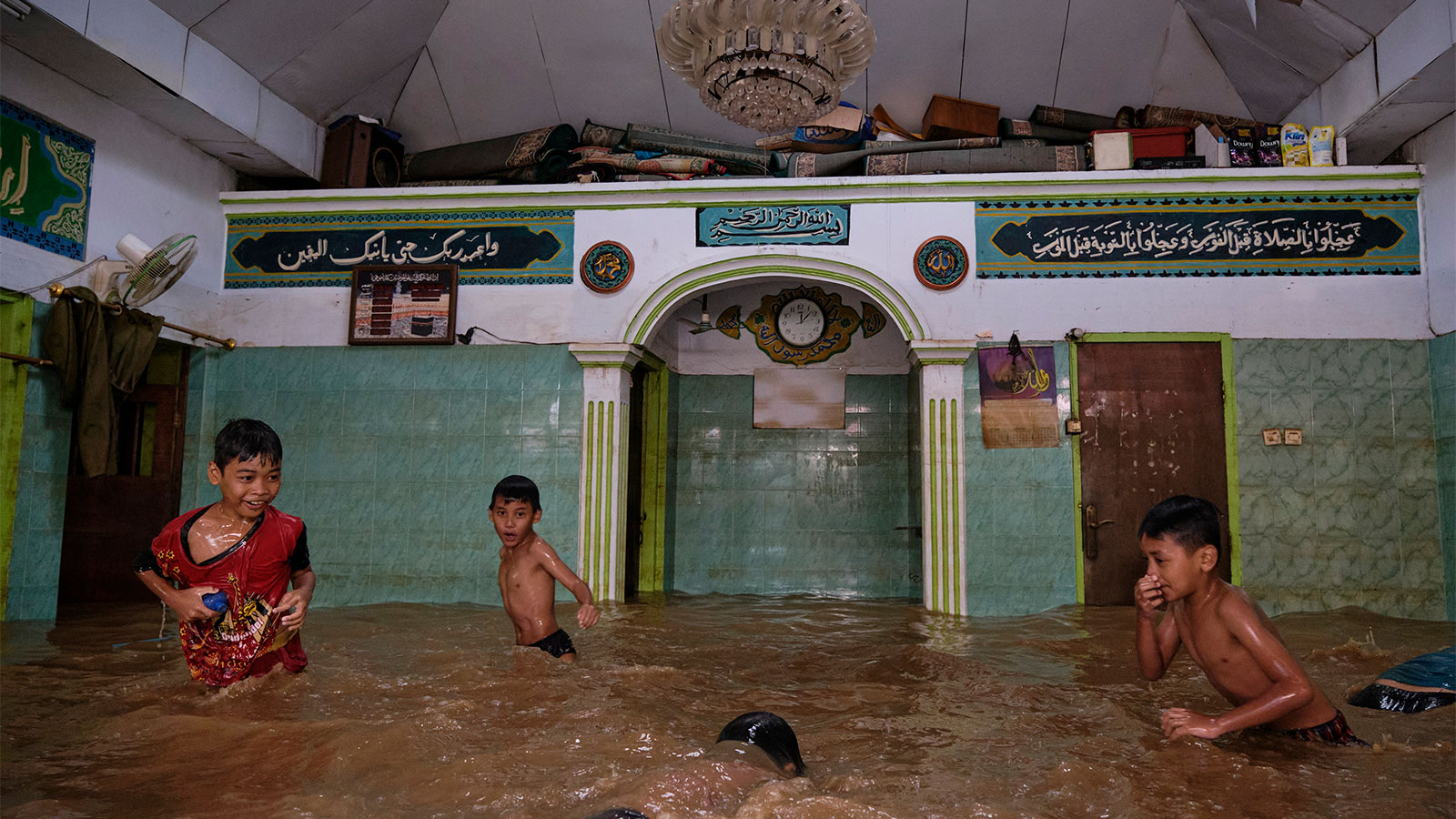
Ed Wray / Getty Images
Last summer, Indonesian President Joko Widodo announced that the capital city will be relocated to the island of Borneo, hundreds of miles northeast of Jakarta, by 2023. But don’t assume that amounts to an acknowledgement of the climate crisis.
“I don’t think the climate is necessarily the reason for the Indonesian government to move the capital,” Rukka Sombolinggi, an indigenous leader from the Toraja ethnic group, said during a press conference at the United Nations General Assembly last year. “It’s simply because the capital is just so overwhelmed and crowded with people, making the traffic and the quality of air and water terribly alarming.”
The irony is that Indonesia also holds one of the most effective tools to fight against climate change: mangroves. These tall trees growing in coastal waters can remove and store carbon humans have emitted into the atmosphere. But instead of protecting and expanding mangrove ecosystems, the government has continued to allow corporations to slash and burn mangroves for palm oil production, thus producing more carbon emissions.
And even in the wake of devastating floods, the Indonesian government plans to stay the course. Two government ministers told Reuters this week that they have no plans to change their climate policy after the New Year’s flooding. But the head of the country’s meteorological agency minced no words about the impact of climate change on the floods’ severity. “The impact of a 1-degree increase can be severe,” Dwikorita Karnawati told reporters on Friday. “Among that is these floods.”

